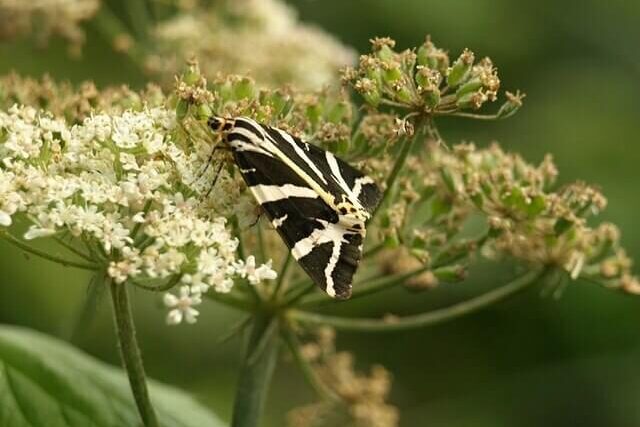
In the picturesque Georgian city of Bath, the soundscape of meadows has evolved with the arrival of new inhabitants – chirping crickets, elegant wasp spiders, and vibrant Jersey tiger moths.
Bath City Farm, a 37-acre urban sanctuary, has become a focal point for conservation efforts, shedding light on the changing dynamics brought about by the climate emergency.
Over the past eight years, diligent volunteers at Bath City Farm have meticulously documented 1,250 species. Remarkably, approximately 30 of these species, previously absent or only present in summer, have now been spotted during winter months.
This unexpected shift has prompted concern and intrigue among experts, emphasising the farm’s role as a living record of environmental transformation.
Mike Williams, an ecologist and trustee leading the wildlife recording efforts, emphasises the significance of insects and arachnids as indicators of climate-induced changes in the natural world. “Spiders are a classic example as due to their short lifespan and mobility they react to changes in weather.”
The once-rare wasp spider, now increasingly prevalent in the area, made its inaugural appearance on the farm three years ago.
“In the early 1990s we only ever saw the wasp spider on the south coast of England, in Dorset,” said Williams. “This was at the extreme north of their range because it was too cold for them. I would never have imagined then that one day they would be found as far north as Bath as we live with the realities of climate change.”
Similarly, the Jersey tiger moth, once confined to the Channel Islands, has become a common sight in the southern regions of England, including the farm.
New arrivals like the green meshweaver spider, ivy bee, and lesser hornet hoverfly further illustrate the farm’s evolving biodiversity. Mike Williams, formerly a professional ecology consultant for esteemed organisations like Natural England and the National Trust, now directs his expertise to scrutinising local changes, highlighting the farm’s role as a microcosm reflecting broader ecological shifts.
“It fascinates and saddens me,” he said. “Our wildlife surveys have shown that climate change isn’t something that will happen in the distant future. Most of the crickets you hear calling in the meadows have only been in Bath for the past 20 years or so – these are Roesel’s bush-cricket and long-winged conehead. The former is very loud and very numerous. I tell people on my nature walks around the farm that they are listening to the sound of climate change when we hear them.”
——————————————————————————
At Natural World Fund, we are passionate about stopping the decline in our wildlife.
The decline in our wildlife is shocking and frightening. Without much more support, many of the animals we know and love will continue in their decline towards extinction.
When you help to restore a patch of degraded land through rewilding to forests, meadows, or wetlands, you have a massive impact on the biodiversity at a local level. You give animals a home and food that they otherwise would not have had, and it has a positive snowball effect on the food chain.
We are convinced that this is much better for the UK than growing lots of fast-growing coniferous trees, solely to remove carbon, that don’t actually help our animals to thrive.
This is why we stand for restoring nature in the UK through responsible rewilding. For us, it is the right thing to do. Let’s do what’s right for nature!
Donate today at https://naturalworldfund.com/ and join in the solution!

